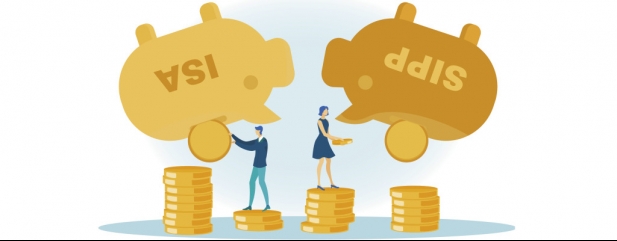Archived article
Please note that tax, investment, pension and ISA rules can change and the information and any views contained in this article may now be inaccurate.
Retirement money: should I access my ISA or SIPP first?

I’m approaching retirement and have the majority of my savings split between an ISA and a SIPP. Does it make any difference which of these pots of money I access first? I have three children and would ideally like to divide anything I have left equally between them when I die.
Charlie
Tom Selby, AJ Bell Head of Retirement Policy says:
It’s worth noting the different tax treatment of ISA and SIPP withdrawals. While ISA withdrawals are entirely tax-free, a quarter of your SIPP is available tax-free from age 55 (rising to 57 in 2028), with the rest taxed in the same way as income.
It is now possible to pass any undrawn funds in your defined contribution pension (i.e. a SIPP) to your nominated beneficiaries and if you die before age 75 this will usually be tax-free.
If you die after age 75, any funds passed down to your beneficiaries will be subject to income tax when they come to make a withdrawal.
If there are funds left over when your beneficiary dies, these can be passed on again, and if they die before age 75, that money will be tax-free.
Your beneficiary doesn’t have to be your spouse or even your children – it can be anyone you wish to receive your pension pot after you die – although your scheme administrator will consider paying benefits to any dependants if they are not otherwise provided for.
Crucially, pensions are usually free from inheritance tax, whereas funds held in ISAs and other savings vehicles like general investment accounts will count towards your estate.
In 2021/22 the inheritance tax allowance is £325,000, with a further £175,000 ‘main residence nil-rate band’ available for parents who wish to pass on their family home to children or grandchildren.
The 2015 death benefits reforms made pensions not just a tax-efficient inheritance vehicle, but one which can potentially be used to pass wealth down the generations. In many cases, it now makes sense for your pension to be among the last financial assets you spend in retirement.
There are a couple of important things to remember. If you die before age 75 then funds must be put into your beneficiaries’ names within two years to be tax-free. If they are not, then they will be subject to income tax for the recipient.
If your fund or part of your fund hadn’t been tested against the lifetime allowance before you died, a test will be carried out before any funds are passed on. However, any inherited pension funds will not count towards the lifetime allowance of your beneficiaries.
You should also make sure your nominated beneficiaries are kept up to date so your pension provider knows who you would like to receive your pension when you die.
DO YOU HAVE A QUESTION ON RETIREMENT ISSUES?
Send an email to asktom@sharesmagazine.co.uk with the words ‘Retirement question’ in the subject line. We’ll do our best to respond in a future edition of Shares.
Please note, we only provide information and we do not
provide financial advice. If you’re unsure please consult a suitably qualified financial adviser. We cannot comment on individual investment portfolios.
Important information:
These articles are provided by Shares magazine which is published by AJ Bell Media, a part of AJ Bell. Shares is not written by AJ Bell.
Shares is provided for your general information and use and is not a personal recommendation to invest. It is not intended to be relied upon by you in making or not making any investment decisions. The investments referred to in these articles will not be suitable for all investors. If in doubt please seek appropriate independent financial advice.
Investors acting on the information in these articles do so at their own risk and AJ Bell Media and its staff do not accept liability for losses suffered by investors as a result of their investment decisions.
Issue contents
Editor's View
Feature
Great Ideas
- DotDigital share slump means you can buy cheaper now
- Growth, profit and M&A to drive CentralNic higher
- Plenty of reasons to remain positive on Euromoney
- The smart way to play a rebound in the Chinese stock market
- All-weather trust Ruffer is selling new shares at a discount
- Investors overreact to Frontier Developments' downgrade

 magazine
magazine








